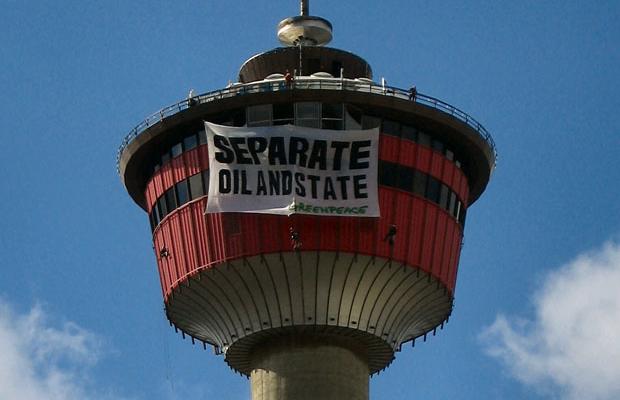 Yesterday, in All Your Tubes Are Belong to Googlizon, I blogged about the Google-Verizon proposal for regulating the internet and why libertarians should oppose both it and any net neutrality laws and regulations. Today, I came across a post on CrunchGear, a tech and gadgets site, by Nicholas Deleon, that criticizes the Tea Party for opposing net neutrality on the basis that it will violate the right of ISPs to free speech. I left a comment on his post, but I’ll reproduce it here.
Yesterday, in All Your Tubes Are Belong to Googlizon, I blogged about the Google-Verizon proposal for regulating the internet and why libertarians should oppose both it and any net neutrality laws and regulations. Today, I came across a post on CrunchGear, a tech and gadgets site, by Nicholas Deleon, that criticizes the Tea Party for opposing net neutrality on the basis that it will violate the right of ISPs to free speech. I left a comment on his post, but I’ll reproduce it here.
I’m a libertarian, not a Tea Partier, but I’ll take a stab at explaining this.
Both free markets and the right to free speech are based on the right to private property. Net neutrality, insofar as it involves regulation, violates private property rights. That said, not every violation of the right to property is a violation of the right to free speech.
“But really, to expect the ISPs to do “right” by you is laughable. If it could, Comcast and the nation’s ISPs would offer 1 mbps (down, mind you) and call that SUPER FAST INTERNET, then charge you $100 per month for the privilege of using it.”
If they could? Maybe. Maybe not. But in a free market, they could not. Restrict competition through regulations, monopoly franchises, and whatnot, and then maybe they could.
“But to oppose Net Neutrality in order to defend the free speech of ISPs is pretty laughable.”
Umm… I don’t see in the letter where they defend the free speech of ISPs. I don’t see it in the quoted soundbite either.1 More likely the speaker was concerned about the free speech of users who could be prevented by net neutrality regulations from purchasing services that otherwise might have been available, services they could have used to express themselves more effectively.
In any case, the fundamental reason to oppose net neutrality laws or regulations is that they constitute a violation of property rights.
Then I realized I had made a small mistake, so I left a second comment:
Okay, I see that in the linked article on Radtke’s quote, the reporter writes:
“The free-speech objection to net neutrality has also gained some ground recently. The National Cable & Telecommunications Association (NCTA) and AT&T began citing First Amendment objections to net neutrality in public discussions and in filings with the FCC this year.
“The free-speech argument holds that, by interfering with how phone and cable companies deliver Internet traffic, the government would be thwarting the free-speech rights of providers such as AT&T, Verizon and Comcast.”
This is the reporter’s interpretation, but let’s say it’s accurate. Is it not possible to imagine how net neutrality regulations could interfere with even the free speech of ISPs? And as “browse” at 1:58 pm UTC pointed out:
“The EFF has some great pieces on Net Neutrality. One of the issues is the Trojan Horse issue: whereby a more activist commissioner could abuse powers won in the aims of Net Neutrality to stifle free expression online. Even if they current FCC has no inclinations to regulate the Internet beyond Net Neutrality, regimes do change pretty frequently, and agendas change with them. If you look at it from that perspective, the argument you quoted above sounds a bit less crazy.”
In any case, as I mentioned in my previous comment, the fundamental reason to oppose net neutrality laws and regulations isn’t free speech but private property.
To wrap things up: That Nicholas finds the Tea Party’s free speech argument so laughable on its face betrays a leftist anti-corporate bias. Corporations are often not the good guys, such as when they seek government protection from competition. But at least corporations are not intrinsically evil. To turn to government as our savior, when it is government that is the primary enemy and source of man-made problems in the world, now that’s more than slightly misguided. In any event, Nicholas hardly gives the Tea Party a fair shake, focusing on their free speech argument as he does and not even bothering to give that a charitable interpretation or serious counterargument.
Cross-posted at The Libertarian Standard.


